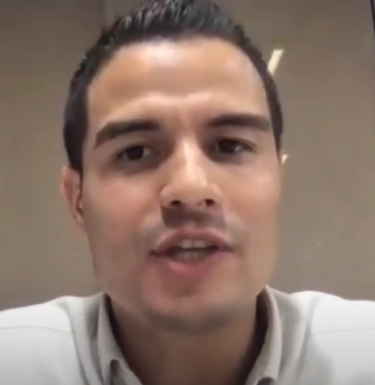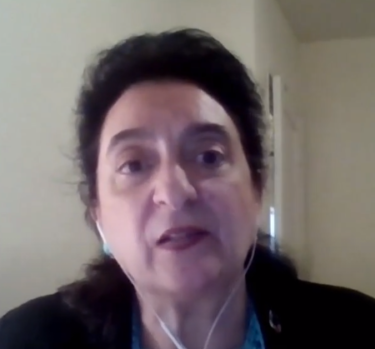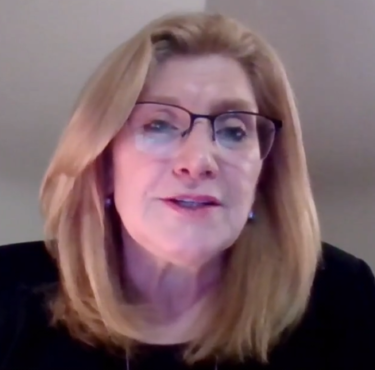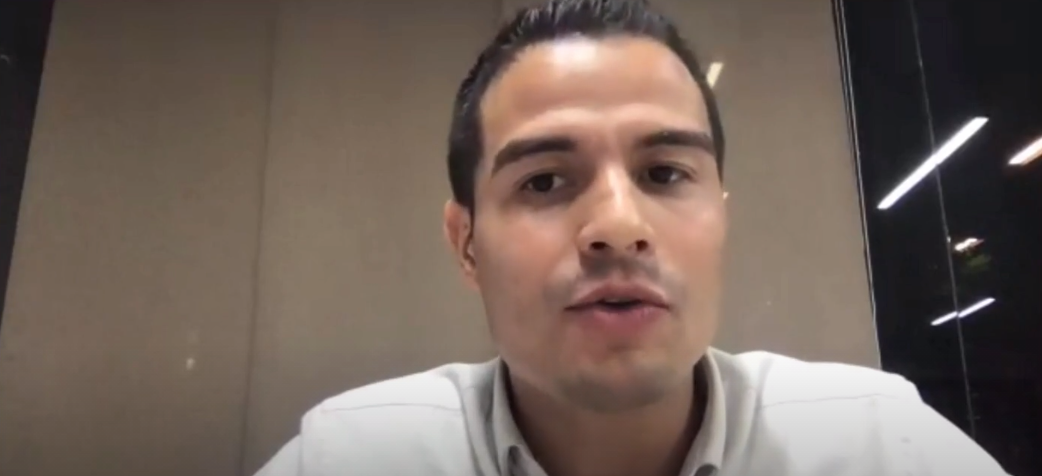Governments say that collecting data on citizens is essential in order to better understand them and to meet their needs in a fair way.
But for citizens to be onboard with sharing their private information, that requires trust in the system.
Winning trust is an ever-present challenge for governments and businesses that collect, share, and store personal data.
Today, the World Economic Forum (WEF) held a virtual session discussing why governments and businesses should collect more data, and how they should go about establishing themselves as being trustworthy.

Juan Sebastian Gonzales
“We won’t have the data if people can’t access the digital services — if they don’t have connectivity” — Juan Sebastian Gonzales, City of Medellin, Colombia
Speaking today during a session on “Shaping the Future of the Data Economy” at the WEF’s Global Technology Governance Summit, the secretary of digital innovation for the City of Medellin, Colombia, Juan Sebastian Gonzales, said that providing internet to all citizens was the first step towards getting access to their data.
“We won’t have the data if people can’t access the digital services — if they don’t have connectivity,” said Gonzales.
“So we provide connectivity, we provide the mechanisms to access information through that connectivity, and we collect data from the users through the digital services.”
These types of digital services he mentioned include up-to-date dashboards on information regarding everything from health, teen pregnancy, and food availability.
Gonzales says that these types of services show the public that the government can be trusted to good with their data.
“In Medellin, we want to use data to understand citizens, so that we can meet their needs in an agile way” — Juan Sebastian Gonzales, City of Medellin, Colombia
“We are providing this information so people are trusting that the government is providing the data because they know we are using the data for the benefit of them.”
Gonzales emphasized again that his local government wants its citizens’ data in order to better serve them.
“In Medellin, we want to use data to understand citizens, so that we can meet their needs in an agile way, but also respecting the principles that are security, safety, health, employment, and education.
“We want to empower the citizens of Medellin with software, so that Medellin becomes an innovation hub,” he added.

Maria Francesca Spatolisano
“If you deliver services in return, I’m sure the citizens and people are more willing to share the data and trust that they will be used for good, and not for other purposes” — Maria Francesca Spatolisano, United Nations
Taking Gonzales’ notion of providing services in exchange for trust a step further, Maria Francesca Spatolisano, assistant secretary-general of the United Nations Office of the Envoy on Technology, said that citizens would be more trusting if they knew they were getting something in return.
“If you deliver services in return, I’m sure the citizens and people are more willing to share the data and trust that they will be used for good, and not for other purposes,” said Spatolisano.
How applicable would that statement be to big tech? Google, Facebook, and Twitter offer their users many services, but does that alone make them trustworthy?
“There is room, we believe — and even a demand — for international principles, which would underpin how citizen data is utilized, stored, shared, so that you can protect fundamental human rights like privacy” — Maria Francesca Spatolisano, United Nations
On the subject of global data governance, Spatolisano suggested that a global set of standards should be applied that would protect fundamental human rights.
“There is room, we believe — and even a demand — for international principles in this area, which would underpin how citizen data is utilized, stored, shared, so that you can protect fundamental human rights like privacy,” she said.
“We have now different laws in different countries. This will multiply once again, and what is missing probably is a core set of principles, so that these different existing national laws will respond to the same basic human rights principles and that also will offer equal protection to all individuals wherever they are, wherever they happen to be.”

JoAnn Stonier
“If you don’t have information about all of society as you’re making decisions, we see the inequities and we see that amplified in artificial intelligence” — JoAnn Stonier, MasterCard
Data collection is what governments and businesses want, and MasterCard’s Chief Data Officer JoAnn Stonier said that they should have information about all of society for the sake of equity.
“If you don’t have information about all of society as you’re making decisions, we see the inequities and we see that amplified in artificial intelligence,” she said.
“We see then misinformation — I’m not talking even about data quality here, I’m just talking about missing information — when we talk about AI and machine learning and then the resulting impact of that.
“There’s a whole bunch of ecosystem pieces that I think we, as greater society — commercial enterprise, government, civil society — we have to begin to build.”
“How do we improve information sharing? How do we get to those information sharing standards?” — JoAnn Stonier, MasterCard
“We have to look at how do we improve data quality? How do we improve information sharing? How do we get to those information sharing standards?
“And how do we share information without it being personal information, so that individuals actually have a right to say, ‘Yes, it’s OK for you to share my personal information,’ or, ‘No, share some proxy information for us instead,'” Stonier added.
MasterCard’s chief data officer believes global technology governance is achievable, but once again, requires trust.
“I think we will get the connectedness of all of the different parties and players, but I do think it goes back to trust,” she said.

“Trust is earned. Trust is not given, and trust is not a destination’ — Jennifer Zhu Scott, Commons Project
Keeping the trust train rolling Jennifer Zhu Scott, CEO of the vaccine passport organization Commons Project, knows very well that trust isn’t something given, nor is it something that lasts without re-upping.
“We talk about trust, but trust is earned,” she told the panel.
“Trust is not given, and trust is not a destination — (once you’re trusted, you are always trusted) — in fact quite the contrary.
“Trust is actually very fragile. You have to constantly work towards this consistent trust.”
With the desire to establish trust in digital services and infrastructures that may not be interoperable between countries, Scott suggests establishing a whole new institution that doesn’t belong to neither big tech nor the state.
“We are living in a world where a nation state and digital state — the boundaries don’t neatly overlap with each other, or align with each other.
“Often, we are thinking about certain types of digital services, or digital infrastructure — perhaps we need a new type of institution to really provide this kind of global digital infrastructure as a public good.”
Scott didn’t say who should be in charge of establishing the global digital infrastructure institution, nor did she mention putting it to a democratic vote of the people, but she did cite the interoperability of her own vaccine passport project as a model of how such an institution could operate moving forward.
“The world actually needs a different kind of institution that builds different infrastructures, doesn’t belong to any of the large tech, and perhaps doesn’t belong to any of the governments”
“The Commons Project — the reason in the past few months, less than a year — when we tried to pivot from providing Android version of Apple Health to provide health data interoperability between hundreds of different health providers in the US to pivot and provide Common Pass, this COVID-related health data interoperability between different countries,” she said.
While Common Pass is trying to make vaccine passports a global reality, less than half of American citizens approve of vaccine passports, and 41 percent say they’re a bad idea, according to the most recent Rasmussen poll.
The Rasmussen survey found:
- 44% of Likely US Voters say requiring proof of COVID-19 vaccination to return to pre-pandemic activities is a good idea
- Forty-one percent (41%) say it’s a bad idea
- 15% are not sure
Despite mixed sentiments among likely American voters, Scott told the WEF panel that the Common Pass vaccine passport project was quickly gaining international speed, which she said justified the need for a new global institution for digital infrastructure.
“The momentum we generated the past few months has been astonishing,” she said.
“I think that kind of assures the world actually needs a different kind of institution that builds different infrastructures, doesn’t belong to any of the large tech, and perhaps doesn’t belong to any of the governments, and instead being shared and owned by individuals regardless of their nationality,” Scott added.
Collecting data, winning trust, building interoperability, and establishing a new global governance institution for digital infrastructure were some of the key themes from the hour-long session on “Shaping the Future of the Data Economy.”
Organized by the architects of the great reset agenda, the Global Technology Governance Summit features many sessions with global leaders and will conclude on Wednesday.
‘Freedom & democracy’ missing from great reset agenda: Brazil’s foreign minister tells WEF president
‘Authoritarianism is easier in a world of total visibility’: WEF report
A timeline of the great reset agenda: from foundation to Event 201 and the pandemic of 2020











